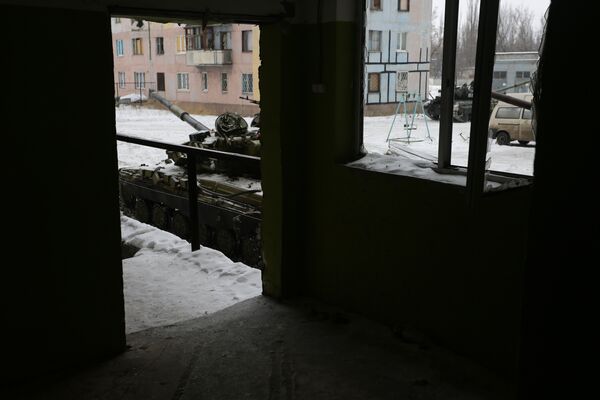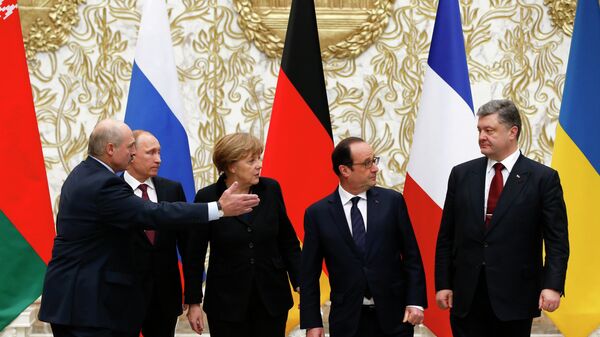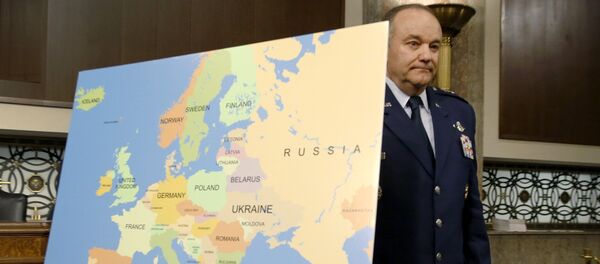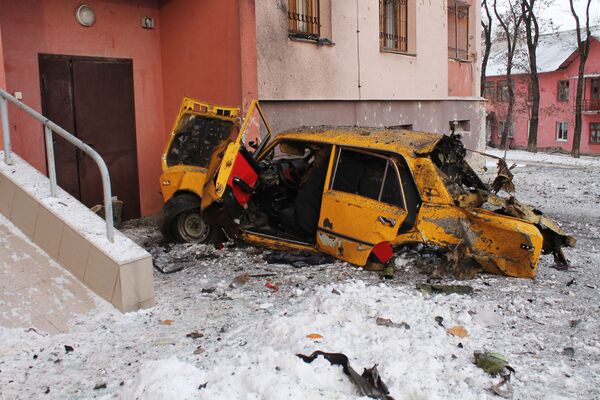Saturday and Sunday mark the solemn anniversary of the Minsk agreements. Despite a series of violations of the ceasefire regime in the past weeks and months, most recently near the town of Avdiivka, the deal reached at Minsk has held, and a resumption of full-out hostilities across the front has been avoided.
According to Ukrainian political observer and RIA Novosti contributor Rostislav Ishchenko, the deal has held despite repeated efforts to declare it dead. It has held even in spite of Kiev's efforts to sabotage it, according to the commentator, and actually "has a good chance of even outlasting the [current Ukrainian] government."

In other words, Ishchenko explained that "the agreement was written by one group of states, but others have been mandated to carry it out. At the same time, one of the parties to the agreement (Kiev) does not recognize the other (the DPR/LPR) as a party to the negotiations process."
Russia, France and Germany have each stepped out as guarantors for Minsk's implementation; their ultimate aim is the de-escalation of the armed conflict in eastern Ukraine. "The guarantor countries, as well as the DPR and the LPR, consider the conflict to have a civil character," Ishchenko recalled. "Ukraine's official position, meanwhile, is that the conflict was provoked by Russian aggression."
Minsk, Ishchenko recalled, is not the first peace plan involving Russia in the post-Soviet space. Other agreements include the settlement on Transnistria (which broke off from Moldova in 1990) and the Karabakh (a territory disputed between Armenia and Azerbaijan since the late 1980s).
In these cases, the analyst noted, it proved "possible to achieve a sustainable long-term cease-fire and the transfer of the conflict from the military to the political format. This has been the case even though the front line in Karabakh sees the occasional flare-up, and the parties threaten one another regularly. It has also been the case even though Chisinau periodically talks about 'returning' Transnistria by force, and has engaged in economic and transport blockades of the breakaway territory."
However, comparing the settlements in Karabakh and Transnistria with what's happening in Donbass would not be entirely appropriate, Ishchenko noted, since the Minsk agreements haven't been able to stop the fighting completely, even if it has brought full-scale conflict to a standstill.
According to the expert, the problem can be traced back to the fact that Kiev doesn't recognize the Donbass republics as legitimate parties to be negotiated with. In fact, Ishchenko suggested, Kiev has urged Russia to stop supporting the breakaways, and "transfer control of the borders" to the Ukrainian side, as agreed in point nine of Minsk II's thirteen points. "Then, Kiev could quickly 'resolve' the issue militarily," or the logic goes. In other words, Ishchenko noted, "from the start, Kiev saw Minsk II merely as a form of political and diplomatic assistance to help 'solve' the conflict by force."
Compared to Syria, which Ishchenko believes is the focal point of a global confrontation between Moscow and its opponents, whose configuration continues to fluctuate, the Ukrainian crisis is a sideshow. Whoever loses in Syria will find it pointless to continue their involvement in the Ukrainian crisis, the analyst stressed, since the country will effectively turn into a "black hole devouring scarce resource without providing any returns." Consequently, the 'loser' will seek to extricate their country from the conflict.
"And this is exactly what Europe and the US are now doing," the analyst noted. "Even the expected attempts by the Trump administration to haggle over the terms of the US stopping to play an active role in Ukraine will be simply an attempt to minimize the damage inflicted on the US materially and on its image…"
As far as the agreement's domestic impact for Ukraine, Ishchenko recalled that "the Minsk agreements were consciously written in such a way that an attempt to actually implement them would lead to a confrontation between the oligarchic government in Kiev and its armed ultra-nationalist base of support." Accordingly, "the longer and more actively Kiev attempts to maneuver in the international arena, the stronger these maneuvers will stimulate domestic contradictions," compounded by the worsening political and socio-economic situation in the country.
Ultimately, the analyst wrote that if Minsk does lead to the current government's collapse, "any government that comes to [take its place], if it is to have any semblance of representing all Ukrainians, will have to swear allegiance to the Minsk accords." In the expert's view, Minsk's total "rejection could occur only if the Ukrainian state itself were to disappear. In such a case, given the absence of one of the subjects to the negotiations process, it would be necessary to acknowledge the fundamental change to the Ukrainian crisis, and begin to develop a new international mechanism for its localization and settlement."







